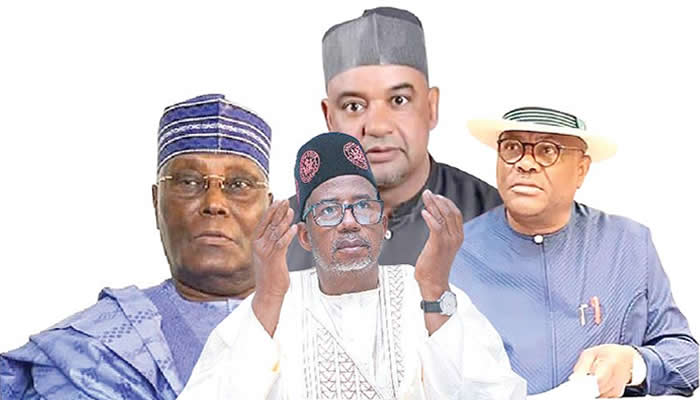In his analysis of the internal conflicts within Nigeria’s Peoples Democratic Party (PDP), Muhammed Lawal highlights the precarious state of the party as it faces a pivotal time ahead of the Ondo State governorship election. The essence of his argument rests on the idea that a disunited party undermines its electoral prospects, drawing parallels to Abraham Lincoln’s famous assertion about a household divided. The PDP finds itself in significant turmoil, particularly surrounding the leadership of its acting National Chairman, Umar Damagum. The tension mirrors similar strife within the ruling All Progressives Congress, indicating that the fragility of party unity can jeopardize electoral success.
The rift within the PDP became pronounced after Damagum’s assumption of office following the suspension of former Chairman, Iyorchia Ayu, in March 2023. Since he took over, Damagum has faced relentless attempts to unseat him, culminating in a public call for his resignation from over 60 members of the House of Representatives. This dissent underscores a party divided, with various factions rallying around or distancing themselves from Damagum. As the critical National Executive Committee (NEC) meeting approaches, the discord has complicated any efforts to forge a united front, raising concerns about the PDP’s ability to maintain cohesion as it prepares for the Ondo electoral contest.
As internal tensions escalated, the party faced additional legal challenges, including a court injunction barring any changes to its leadership, which appeared to further complicate the dynamics surrounding Damagum’s presidency. Nonetheless, the party has sought to argue that such matters are internal issues, largely asserting its autonomy to resolve leadership questions without external interference. Internal discussions have become heated and have included debates regarding which region should supply Damagum’s successor, showcasing the complex regional politics within the PDP, particularly between the North Central and North-East factions.
Adding to the headaches for Damagum, several prominent figures, including party stalwart Dino Melaye, have publicly criticized his leadership and those close to him, indicating a deepening rift. Damagum, however, has shown resilience against the mounting pressure, claiming that criticism only serves to enhance his profile. His determination to remain in office reflects a refusal to buckle under factional threats, even as significant divisions continue to emerge within the ranks of PDP leadership, particularly among state governors who have begun to align themselves with either Damagum or factions seeking his removal.
Amid this turmoil, attempts at reconciliation have surfaced, largely viewed as a strategic move to solidify party unity before the imminent Ondo State governorship election. However, skepticism lingers regarding the sustainability of this tactical maneuver. The long-standing influence of various governors, particularly Nyesom Wike, within the PDP complicates genuine reconciliation efforts, prompting concerns that any perceived harmony may merely be superficial. Efforts from the PDP Governors’ Forum to assure party members that conflicts were resolved have not silenced dissenting voices that continue to question Damagum’s leadership and his ties to influential party figures.
The stakes are particularly high as the PDP prepares for the Ondo State election. Many party members believe that internal strife could either make or break their chances in the upcoming political landscape. The remarks from PDP state and national leaders reflect a mix of hope and caution as discussions on resolving disputes unfold. While some assert a preference for continuity and others voice the need for substantial change, there is a collective understanding that the results of the Ondo election may very well dictate the future trajectory of the PDP and its leadership heading into crucial national elections in 2027. As the situation unfolds, time will tell if the PDP can overcome its current disarray to become a formidable challenger in Nigerian politics once more.














